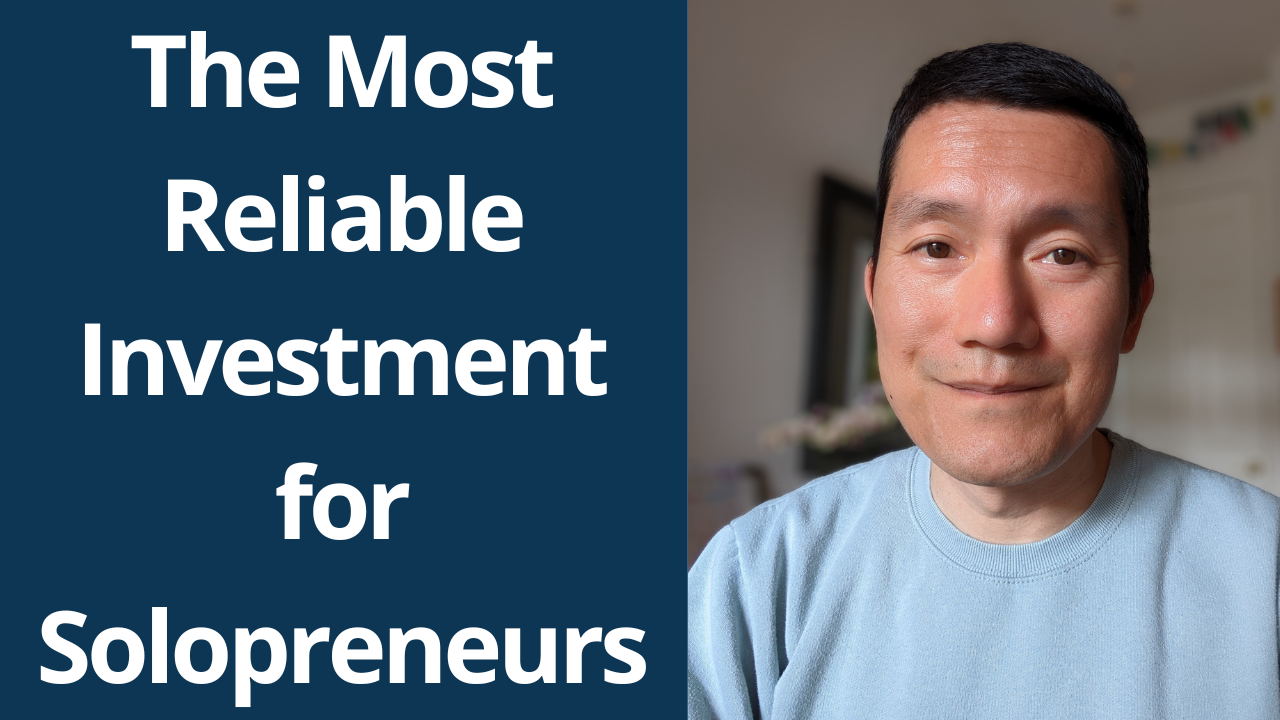The Most Secure Investment
Cryptocurrency is a gamble. The stock market is volatile. Shockingly, even bonds don’t feel safe anymore.
The best investment for most of us is – and has always been – in improving our own monetizable skills.
You will never have to worry about ups and downs. It’s always valuable. It’s the highest sustainable return on investment in money and in your personal growth. Win-win.
I wrote in December 2017, at the height of that Bitcoin bubble, about why I’m not investing in cryptocurrency. I still agree with those reasons today.
My basic rules of personal finance:
-
Spend less than you earn. I’d give a temporary exception if you’re starting a business and have no job income right now. Still, don’t violate the next rule...
-
If you have retirement savings, please don’t withdraw anything from there, until you are ready to retire. Don’t take money out for any thrilling investment (many of us have been duped more times than we remember), and not even to invest in your business. Not with your retirement funds. It’s not a wise path. See my other blog post about what I invest in: https://www.georgekao.com/blog/investing
-
Always keep a buffer of money for living expenses… giving yourself enough time to get a job if necessary. If you’re confident that you can get an acceptable job within 3 months that will pay all your bills, then you just need 3 months of buffer.
-
With extra money beyond the buffer, pay off your highest-interest debt first. Because paying off the principal balance of high-interest debt is equivalent to making a secure and reliable investment.
-
Never borrow money, unless it’s a mortgage.
Now we get into “investment” territory: what to do with money that is left after paying for modest living expenses and high interest debt?
There are two I’ll recommend…
Improving your monetizable skills
Most who are reading this are solopreneurs, so I’ll list skills related to running one’s own business:
-
The aspects of your craft – such as healing, coaching, consulting, and other services – that people love to pay you for. List out all the ways you could possibly sell your skills (some, you already have been) – which of those ways are people most happy to pay you for
-
Your skills of joyful productivity that allow you to effectively manage your time, energy, and information everyday. Most service providers, I’ve noticed, are lacking in such skills, so when you develop yours, you’ll easily become one of the most productive in your niche.
-
Your ability to market yourself and grow a true fan audience – in other words, authentic marketing. I’ll explain more in the next section.
The money, time, and energy you spend in really learning the above skills will bring you sustainable financial returns over the years. As a bonus, it’ll create a deeply fulfilling work life for you!
Build your online audience
When you have an audience that genuinely cares about you, you can sell anything that you believe is worthwhile, and they will trust you enough to consider it. They believe in you and your recommendations.
With a genuine following of loyal fans, you will never be in want.
You will always be able to use one or more of these options:
-
Create and sell your own products
-
Recommend and sell someone else’s product
-
Or simply ask your audience for financial support
These options become more viable the more you grow a genuine fan base. This is why I often encourage you, with articles about authentic content marketing, to keep building an audience.
In the distant past, we humans found long-term security in our tribe. As long as we earned the respect of our tribe, we would always be taken care of. Now, in our contemporary individualistic society, we each have to create our own tribes.
With the internet, we have the opportunity to be found by true kindred spirits from all over the world. We can create a global tribe of people who deeply resonate with our authentic self. This is how we create long-term security in modern times.
How I build such an audience, and what I recommend for everyone, is to create consistent, authentic, relevant content.
Yet, that content still needs to be distributed for enough people to see it. My favorite way of distribution is through Facebook Ads.
In the past few years, my Facebook & Instagram Ads have returned me an average of 90% ROI (the lowest in any given month has been 40% and the highest has been close to 200%). Even the low range of 40% is a far higher return than investing in any credible financial fund. Increasingly, FB Ads is where I’ve been putting extra money.
You can learn my comprehensive system in my Facebook Ads Course.
The bottom line is to look at the process of growing a genuine audience as your most secure retirement -- to have lots of people who care about you, because you cared enough to serve them for years.
This is what it means to have true security.
(Originally written in Nov 2018, updated in 2022.)
